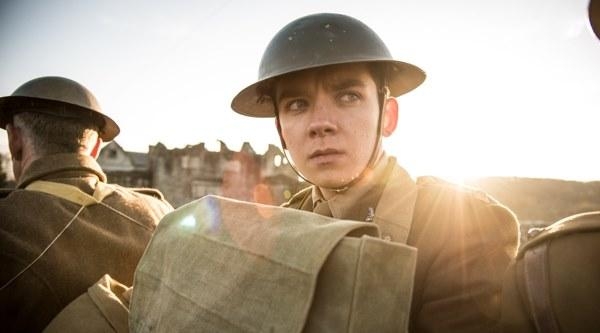Journey’s End is showing in the cinema in Plymouth Arts Centre until Saturday 31 March.
This is a powerful study of men coping with life in the trenches of northern France, during the First World War, when the Germans were preparing to make what became known as their Spring Offensive in March 1918.
Just a few hundred yards from where the Germans are massing their forces, C-Company take over the opposing British trenches for their 6-day rotation to the front. They quickly find that it is in a poor state of repair and they only have a few rusty mortars and an inadequate supply of weapons and ammunition to put up much of a fight.
Director Saul Dibb focuses on the men who are as much trapped in this maze of muddy and inhospitable trenches, as the rats who scurry about in the shadows. Raleigh, played by Asa Butterfield, is a young officer fresh from training, who seeks out a posting with Sam Claflin’s Captain Stanhope, his former school house monitor and boyfriend of his sister.
Raleigh is introduced to the runnings of trench life and mentored by Paul Bettany’s Lieutenant Osborne. Whereas Osbourne is resigned to his fate, Stanhope is a changed man who is severely damaged by his wartime experiences and is now relying on whiskey to get him through each day.
Second Lieutenant Hibbert played by Tom Sturridge, tries to escape by pleading he has shell shock and needs to be sent for medical treatment. Osborne, who ironically is as mentally damaged as Hibbert, warns him that if he does not stay he will be shot as a coward. In other words, there is no way out of this situation.
The sober mood is lightened by Toby Jones as Private Mason, who deals with the catering for the officers and has to make the best of unidentified cutlets and other barely edible food.
The men write letters home, putting a brave face on their situation, and they have fond memories of their life back at home, yet they are just pawns in a game where they have to be sacrificed for the sake of the greater battle plan.
The sense of foreboding is highlighted by Natalie Holt’s musical composition featuring mournful strings, and the cinematography by Laurie Rose emphasises the brooding and dark environment of the Front Line, which can suddenly erupt into deadly flares of light and gunfire.
Based on a stage play by R. C. Sherriff that was originally performed in 1928, Journey’s End is a fitting and potent reminder of the horrors of war, seen from the viewpoint of a specific group of men over a period of a few days.









Comments
Comments are closed.